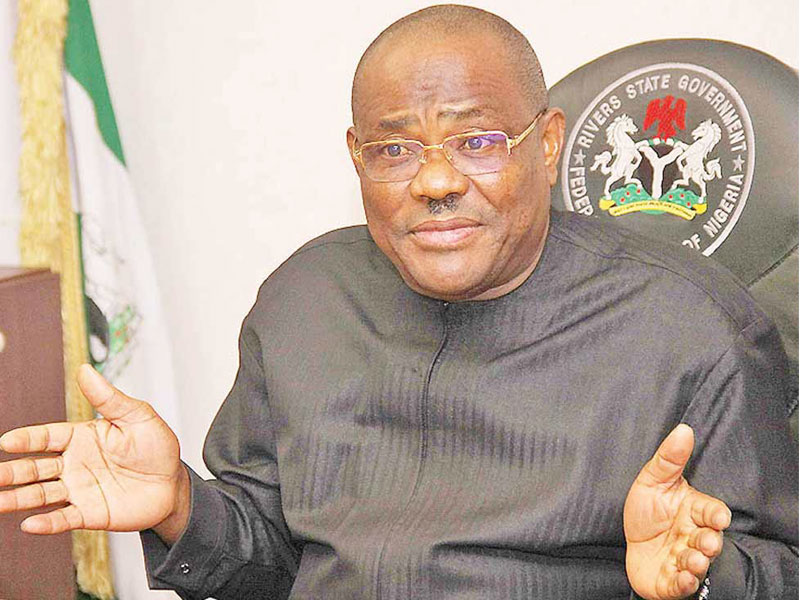Business
Just In: CBN Reduces Electronic Transfer, ATM Withdrawal Charges
Published
6 years agoon
By
Editor
The Central Bank of Nigeria (CBN) has reviewed downward electronic transfer and ATM fees as well as card maintenance fees.
The new charges were contained in the latest Guide to Charges by Banks and Other Financial Institutions just released by the CBN
According to the CBN, bank customers will now pay N10 for electronic transfers below N5,000, and N25 for electronic transfer between N5,000 and N50,000. Only electronic transfer above N50,000 will attract N50 charge.
This Guide, which replaces the Guide to Charges by Banks and Other Financial Institutions issued in 2017, takes effect from January 1, 2020, and maybe reviewed from time to time to reflect changes in the business environment.
The CBN, therefore, urged financial services providers and their customers alike to acquaint themselves with the provisions of the Guide and be properly guided accordingly.
Previously, bank customers pay N50 charge for electronic transfers below N500,000.
Further, the CBN in the new Guide to Bank Charges slashed charges for cash withdrawal via Other bank’s ATM to “maximum of N35 after the third withdrawal within the same month” from “N65 after the third withdrawal within the same month”.
YOU MAY ALSO LIKE: CBN Disburses N30b To Oil Palm Sector In One Year, Edo Gulps N25bn, Says Emefiele
The CBN also removed Card Maintenance Fee (CAMF) on all cards linked to current accounts, a maximum of one Naira per mille for customer induced debit transactions to third parties and transfers or lodgments to the customers’ account in other banks on current accounts only,
Commenting on the new charges, Director, Corporate Communications, CBN, Isaac Okorafor, explained that the current NIP charges apply to use of Unstructured Supplementary Service Data (USSD), purchase with cash-back will attract a charge of N100 per N20,000 subject to cumulative N60,000 daily withdrawal. Also, for cards linked to savings account, a maintenance fee has been reduced to a maximum of N50 per quarter from N50 per month amounting to only N200 per annum instead of N600.
Furthermore, he said that there will be no more charges for reactivation or closure of accounts such as savings, current and domiciliary accounts while status enquiry at the request of the customer (like confirmation letter, letter of non-indebtedness and reference letter) will now attract a fee of N500 per request.
On Current Account Maintenance Fee (CAMF), the Guide expressly stated that this would be applicable only to current accounts in respect of customer-induced debit transactions to third parties and debit transfers/lodgments to the customer’s account in another bank. It emphasized that CAMF is not applicable to Savings Accounts.
According to the Director, the CBN carried out the review of the Guide, which also prescribes charges permissible for Other Financial Institutions and non-bank financial institutions, in order to align with market developments.
YOU MAY ALSO LIKE: Nigeria Strengthen Surveillance As Deadly Animal Disease Rocks Niger Republic
To guard against excess, unapproved or arbitrary charges by banks and other financial institutions, the Guide stipulates a penalty of N2,000,000 per infraction or as may be determined by the CBN from time to time for financial institutions that breach any provision of the guide.
The Guide also emphasized that failure by any bank to comply with CBN’s directive in respect of any infraction shall attract a further penalty of N2,000,000 daily until the directive is complied with or as may be determined by the CBN from time to time.
Consequently, the CBN directed banks to log every complaint received from their customers into the Consumer Complaints Management System (CCMS) in addition to generating a unique reference code for each complaint lodged, which must be given to the customer. Failure to log and provide the code to the customer, it added, amounts to a breach and is sanctionable with a penalty of N1,000,000 per breach.
The charges prescribed in the Guide were arrived at after extensive consultations with stakeholders and is expected to enhance flexibility, transparency and competition in the Nigerian banking industry.
YOU MAY ALSO LIKE READ: Breaking: Millions Feared Lost As Fire Engulfs Another Market In Benin
(Vanguard)
You may like

The Naira experienced a slight depreciation on Friday at the official market, trading at N1,528.56 to the dollar.
Data obtained from the website of the Central Bank of Nigeria (CBN) showed that the Naira lost N2.73.
This represents a 0.17 percent loss compared to the N1,525.82 recorded on Thursday.
READ ALSO:Naira Appreciates At Official Market
The Naira, which opened the week on Monday with a gain of N9.52 against the dollar, held steady gains until Thursday.
On Wednesday, the local currency gained N3.42 against the dollar and received commendation from the International Monetary Fund (IMF).
The IMF, in its 2025 Article IV Consultation report on Nigeria, commended the CBN for its reforms to the foreign exchange market, which supported price discovery and liquidity.
Business
JUST IN: Dangote Refinery Hikes Petrol Ex-depot Price
Published
2 weeks agoon
June 20, 2025By
Editor
Nigerians may soon pay more for petrol as the Dangote Petroleum Refinery on Friday increased its ex-depot price for Premium Motor Spirit to N880 per litre, raising fresh concerns over fuel affordability and price volatility in the downstream sector.
Checks on petroleumprice.ng, a platform tracking daily product prices, and a Pro Forma Invoice seen by The PUNCH confirmed the hike, representing a N55 increase from the previous rate of N825 per litre.
The increment would ripple across the entire fuel distribution chain, likely pushing pump prices above N900/litre in some parts of the country, especially in areas far from the distribution hubs.
The hike comes despite global crude prices falling. Brent crude dipped by 3.02% to $76.47, WTI fell to $74.93, and Murban dropped to $76.97 on Friday. The decline in benchmarks offers little relief due to persistent fears of sudden supply disruptions.
READ ALSO: JUST IN: Dangote Refinery Sashes Petrol Gantry Price
The refinery has increased its reliance on imported U.S. crude and operational costs amid exchange rate instability, which adds to its pricing pressure.
On Thursday, the President of the Dangote Group, Aliko Dangote, said his 650,000-barrel capacity refinery is “increasingly” relying on the United States for crude oil.
This came as findings showed that the Dangote Petroleum Refinery is projected to import a total of 17.65 million barrels of crude oil between April and July 2025, beginning with about 3.65 million barrels already delivered in the past two months, amid ongoing allocations under the Federal Government’s naira-for-crude policy.
Dangote informed the Technical Committee of the One-Stop Shop for the sale of crude and refined products in naira initiative that the refinery was still battling crude shortages, which had led it to resort to imports from the United States.
READ ALSO:Dangote Stops Petrol Sale In Naira, Gives Condition For Resumption
On Monday, the president of the Petroleum and Natural Gas Senior Staff Association of Nigeria, Festus Osifo, accused oil marketers of exploiting Nigerians through inflated petrol prices, insisting that the current pump price of PMS should range between N700 and N750 per litre.
He criticised the disparity between falling global crude oil prices and the stagnant retail price of petrol in Nigeria.
“If you go online and check the PLAT cost per cubic metre of PMS, convert that to litres and then to our Naira, you will see that with crude at around $60 per barrel, petrol should be retailing between N700 and N750 per litre.”
He asserted that if Nigerians bear the brunt of higher fuel costs, they should be allowed to enjoy the benefit of low pricing.
His forecast of increased costs now appears spot on, considering the latest developments.
Marketers are already adjusting. Depot owners and fuel distributors in Lagos and other cities anticipate a domino effect, with new price bands expected to follow Dangote’s lead.
Many had held back pricing decisions since Tuesday, when the refinery halted sales and withheld fresh PFIs. The delay fueled speculation, allowing opportunistic price hikes across various depots.

The Naira, which has seen steady appreciation against the Dollar all week, closed stronger on Friday, trading at ₦1,580.44 in the official forex market.
Data from the Central Bank of Nigeria’s website show the Naira gained ₦4.51k against the Dollar on Friday alone.
This marks a 0.28 per cent appreciation from Thursday’s closing rate of ₦1,584.95 in the official foreign exchange window.
The local currency maintained consistent strength throughout the week, recording gains daily.
READ ALSO: Naira Appreciates Against Dollar At Foreign Exchange Market
On Monday, May 19, it traded at ₦1,598.68; on Tuesday, at ₦1,590.45; and on Wednesday, at ₦1,584.49.
These gains suggest increased investor confidence and improved forex supply, contributing to the naira’s performance.
Meanwhile, the CBN, at its 300th Monetary Policy Committee meeting held Monday and Tuesday, retained the Monetary Policy Rate at 27.5 per cent.
- Online Reports On Protest False, Intent To Tarnish Our Image – AAU Ekpoma
- Obi In Benin, Donates N15m To St Philomena School of Nursing Sciences
- What To Know About Rashidi Ladoja, The Next In To Become Olubadan
- Tension In Kano As Sanusi, Bayero Loyalists Clash Near Emir’s Palace
- Tension As FG Strips FAAN, NCAA, NAMA Of Revenue Collection Powers
- Flash Flood Warning: Sokoto, Edo, Akwa Ibom, 17 Other States At Risk In July — NiMet
- Trump Threatens Extra 10% Tariff On BRICS Nations
- Tiwa Savage Shares Emotional Moment With Son
- JUST IN: Gunmen Kill Policeman, Abduct Other In Imo
- INEC Announces Dates For Commencement Of Continuous Voter Registration In Osun
About Us
Trending

 Sports5 days ago
Sports5 days agoBREAKING: Liverpool Star Diogo Jota Is Dead

 Politics3 days ago
Politics3 days agoCoalition: Why Tinubu Must Not Sleep —Primate Ayodele

 Entertainment2 days ago
Entertainment2 days ago2Baba’s New Romance In Trouble As Natasha Fumes Over Loyalty Remark

 Politics5 days ago
Politics5 days agoCoalition: Abure-led LP Gives Obi 48 Hours To Leave Party

 Sports5 days ago
Sports5 days ago5 ‘Big’ Recent Events Diogo Jota Had Before His Death

 Politics3 days ago
Politics3 days agoAmaechi: I Will Resign As FCT Minister If… Wike

 Metro2 days ago
Metro2 days agoTragedy As Navy Boat Capsizes After Free Medical Outreach In Delta

 Metro5 days ago
Metro5 days agoThree-storey Building Collapses On Lagos Island, Many Injured

 Politics5 days ago
Politics5 days agoADC, A Coalition Of Failed Politicians – Wike

 Metro3 days ago
Metro3 days agoVIDEO: Police Arrest Varsity Student For Stabbing Colleague, Demanding Ransom In Delta















